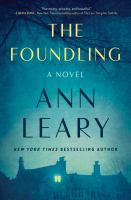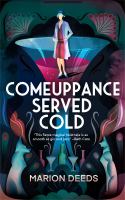Have you ever read a historical fiction novel that deals with the eugenics movement in the U.S. in the early part of the twentieth century? No, and neither had I, not until I read Ann Leary’s superb and suspenseful novel, The Foundling.
 The story is set in 1927 in Pennsylvania, and it’s told in first person from the point of view of Mary Engel. Mary spent part of her childhood in St. Catherine’s Orphan Asylum, because her mother had died and her father worked in lumber camps where it was too dangerous to have his daughter with him. We meet Mary when she is eighteen, living with her aunt, and attending secretarial school. One of her instructors recommends her for a post with the Nettleton State Village for Feebleminded Women of Childbearing Age, run by the charismatic Dr. Agnes Vogel. Dr. Vogel is entrenched in the eugenics movement and runs the home to prevent girls who are classified as “less intelligent” from reproducing. Eugenics! Horrifying practices masked under the pretense of science! It’s about time to grapple with this issue in our historical fiction.
The story is set in 1927 in Pennsylvania, and it’s told in first person from the point of view of Mary Engel. Mary spent part of her childhood in St. Catherine’s Orphan Asylum, because her mother had died and her father worked in lumber camps where it was too dangerous to have his daughter with him. We meet Mary when she is eighteen, living with her aunt, and attending secretarial school. One of her instructors recommends her for a post with the Nettleton State Village for Feebleminded Women of Childbearing Age, run by the charismatic Dr. Agnes Vogel. Dr. Vogel is entrenched in the eugenics movement and runs the home to prevent girls who are classified as “less intelligent” from reproducing. Eugenics! Horrifying practices masked under the pretense of science! It’s about time to grapple with this issue in our historical fiction.
Mary is dazzled by Dr. Vogel’s presence and stature in the scientific community, and swallows her arguments for separating the girls from the rest of society. Nettleton is based on science and intelligence tests, right? And how can the science be wrong?
Mary is shocked when she thinks she recognizes Lillian, a boisterous schoolmate from her days at St. Catherine’s. At first Mary refuses to believe her own eyes, and then she reluctantly begins to question Dr. Vogel’s decisions regarding the girls in her care.
It all adds up to a suspenseful journey as Mary puts together the pieces of what she sees and comes to terms with how she wants to respond. The time period, the setting, and the eugenics issue all come together to create a riveting story like no other I’ve read before.
 For more historical fiction set in the twentieth century, try these:
For more historical fiction set in the twentieth century, try these:
The Lioness by Chris Bohjalian
Lessons in Chemistry by Bonnie Garmus
Comeuppance Served Cold by Marion Deeds
